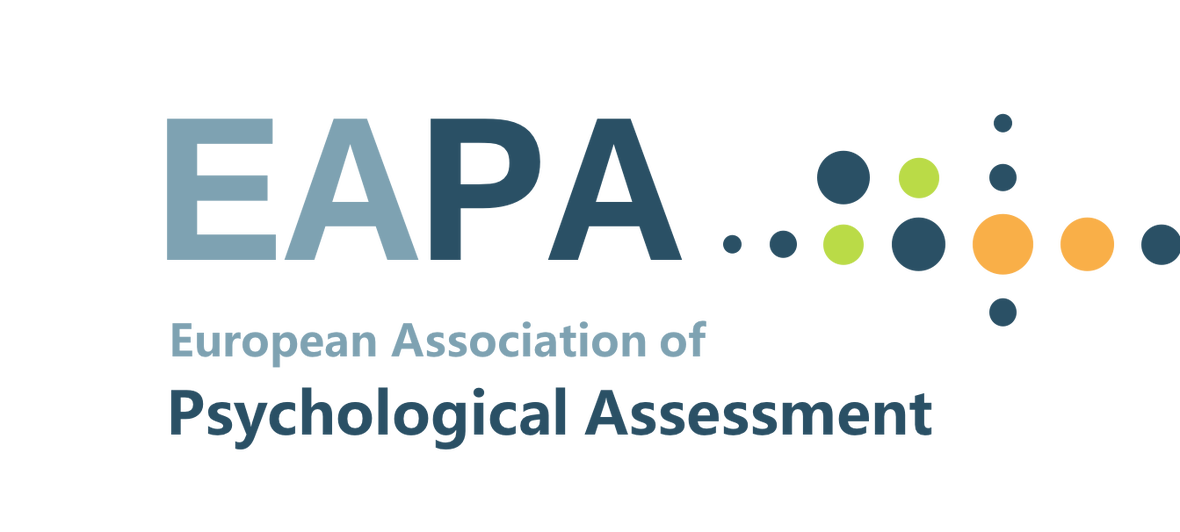Meet and interact with EAPA members!
Prof. Maria Victoria del Barrio Gándara, Ph.D.
(Universidad Nacional de Educación a Distancia, Spain)

Currently, I am working on validating and updating the Children Depression Inventory (CDI-2) and studying how Spanish psychologists are doing assessments (see ResearchGate).
Acknowledgment: If I could give out a prize for outstanding work in the domain of Psychological Assessment I would give it to Leonard Carmichael, whose Manual of Child Psychology, edited at the beginning of the thirties, contains studies relevant to this day.
Favorite test or measure: SENA.
How can psychological assessment improve?
In my opinion, assessment, a topic now post-maturity, has suffered a sort of crisis. The DSM and ICD provided us with a ‘dictionary’, but many voices have been raised to say they aren't "all-knowing". Another problem is the use of some ‘empty content terms’ due to fashions.
Suggested papers:
Child and Adolescent Depression: A Review of Theories, Evaluation Instruments, Prevention Programs, and Treatment.
Adolescents' self-reported problems a predictor of psychopathology in adulthood: 10-year follow-up study.
Las Ideas equivocadas sobre la depresión infantil y juvenil.
Kay Brauer, M.Sc.
(Martin-Luther-Universität Halle-Wittenberg, Germany)

Currently, I am working on a larger study that examines the overlap and distinctiveness between adult playfulness and creativity, with the latter being assessed by an array of methods, like self- and peer reports and semi-objective situational judgment tests. Other current projects include a study on the influence of item response formats on the magnitude of self-other agreement coefficients in interpersonal perception research and a replication and extension of my study on the perception of adult playfulness from short textual self-descriptions.
Favorite tests or measures:
LPS-2 and Deese-Roediger-McDermott paradigm
How can psychological assessment improve?
(1) When introducing a new instrument by providing highly advanced analyses of the external validity of their measure while missing to provide groundwork such as analyses of the items' and scale parameters, reliabilities, and the structural validity of their measures.
(2) I am concerned with the over-reliance on cut-off values (e.g., for the interpretation of internal consistencies or model fit indices) without critically considering context factors when evaluating new measures.
(3) Psychological assessment is not an “add-on.” I miss the acknowledgment of the importance of psychological assessment as one of the basic fields in psychology (see Planning a career in psychological assessment: Lessons learned from the EAPA Winter School 2021)
Suggested papers:
Using cross-classified structural equation models to examine the accuracy of personality judgments.
Testing similarity effects with dyadic response surface analysis.
Accuracy of judging personality.
Prof. Kai Tobias Horstmann, Post-Doc
(Humboldt-Universität zu Berlin, Germany)

Currently, I am working on understanding personality states and their relation to global, self-reported personality traits. Experience sampling and daily diary methods are now very popular, but the psychometric quality of the so obtained scores is oftentimes not evaluated and therefore unknown. I think that we should not simply apply the same standards that were developed for global self-assessment questionnaires to repeated, intensive assessments, but that we should carefully develop new standards.
Acknowledgment: John C. Flügel (1884 - 1955) published a paper in 1925, A quantitative study of feeling and emotion in everyday life, that outlines several of the problems we are still dealing with when using experience sampling methods, such as the estimation of reliability or the potential impact of response styles.
How can psychological assessment improve?
(1) The increased and widespread use of experience sampling and daily diary requires a clear guideline on how to develop measures for such purposes, or how to evaluate their psychometric property.
(2) We (as a community) should develop and agree on standards for data sharing, data documentation, and data reuse.
Suggested paper:
A multi-rater framework for studying personality: The trait-reputation-identity model
Prof. Tuulia Ortner, Ph.D.
(University of Salzburg, Austria)

Currently, I am working on a new category system in order to assess quality in psychological reports in family court, a new test to assess aptitudes necessary for teacher students, and an Objective Personality Test for pilots that aims to assess flight-relevant characteristics implemented in a flight simulator.
Acknowledgment: Our former president, Fons van de Vijver, has a collection of works I admire, especially his developments and research on bias and equivalence in testing within the context of intercultural. He was a great and inspiring colleague, and he has always been very supportive of young scientists.
Favorite test or measure:
Objective Personality Tests by presenting computerized scenarios
How can psychological assessment improve?
(1) Too many research projects solely rely on self-reports in terms of questionnaires. They should employ a multimethod approach.
(2) Probabilistic models deserve more recognition. These models allow for an elaborate investigation of items, test versions, and test takers’ reactions.
(3) Research in psychological assessment is often not as attractive as research in other fields as the probability of many citations is less probable, albeit necessary for career development. Researchers may feel obligated to be active in other areas than assessment. Although such combinations may be very fruitful, resources for research can be lost.
Suggested papers:
Sex-specific differential prediction of college admission tests: A Meta-Analysis.
Why time constraints increase the gender gap in measured numerical intelligence.
Prof. Miguel Ángel Carrasco Ortiz, Ph.D.
(Universidad Nacional de Educación a Distancia (UNED), Spain)

Currently, I am working on (i) the validation and update of the Children Depression Inventory (CDI-2) de M. Kovac to the Spanish population in collaboration with TEA Publisher, (ii) extended nomological net, construct validity, and development of the DSM-scales of the Evaluation System for children and Adolescents (SENA) in Spanish population, (iii) Adaptation of the SENA to different European countries such as Poland, and Italy, and (iv) cross-cultural validation of the Interpersonal Rejection Sensitivity Scale in collaboration with the International Society for Interpersonal Acceptance Rejection.
Favorite test or measure: Achenbach System of Empirically Based Assessment (ASEBA)
How can psychological assessment be improved?
I think now psychological assessment has new challenges regarding cross-cultural assessment, the use of new technologies, and the automation and innovation of the evaluation. We need to develop evidence-based guides to assess, in a standardized way, different constructs from different fields, and contexts of the psychological discipline.
Suggested paper:
Evidence‐based assessment as an integrative model for applying psychological science to guide the voyage of treatment.
Prof. Marjolein Fokkema, Ph.D.
(Leiden University, Netherlands)

Currently, I am working on developing tree-based methods, i.e., statistical methods that provide results in the form of one or more decision trees (e.g, these can be used to determine whether a patient is at risk for a psychological disorder, or which patients will benefit more from psychotherapy than pharmacotherapy). These decision trees are much easier to understand by non-statisticians than the results of most other statistical analyses.
Acknowledgment: Lee Cronbach wrote, in 1949, ‘Essentials of psychological testing’. For this is an inspiration. He is most widely remembered for Cronbach's alpha, while he never even claimed to have come up with the formula... Not a lot of people may remember that his work covered all important aspects of psychological testing: reliability, validity, interpretation, and test use.
How can psychological assessment improve?
The use of increasingly complex statistical models and results. Computation power may come cheap these days, but I prefer statistical results that can be understood, explained, and applied by a human. Sometimes words like 'machine learning' or 'artificial intelligence' can be used like a magical veil to hide the fact that such very complex models often provide only marginal gains over simpler models, or that even large amounts of data can sometimes not predict human behavior very well.
Suggested paper:
How performing PCA and CFA on the same data equals trouble.
Sonja Heintz, Ph.D.
(University of Plymouth, United Kingdom)

Currently, I am working on the assessment of individual differences and psychometrics with a focus on humor and positive psychology. Specific topics include humor/comic styles, humor behaviors (e.g., humor comprehension, appreciation, and production), creativity, positive personality traits, character strengths, positive emotions, and well-being.
Acknowledgment: Jacob Cohen produced groundbreaking work on effect sizes and power analyses in psychological research as well as for his discussions of statistical significance and null hypothesis testing, long before the current replication "crisis" / renaissance.
Favorite test or measure:
Short Version of the Sense of Humor Scale (SHS-S)
How can Psychological Assessment be improved?
In my view, the most important issue is to ensure a high quality of research and applications of Psychological Assessment. This includes proper development, validation, adaptation, and usage of measures and associated methods and statistical techniques.
Suggested paper:
The Mediation Myth


